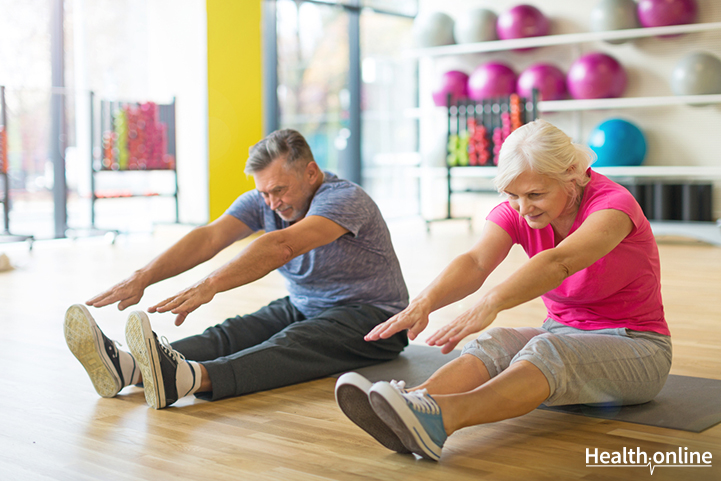
The Secret to Keeping Your Bones Healthy As You Age
As you age, you need to focus on maintaining your bone health, owing to the rapid calcium depletion you face. You should be able to get enough calcium from your diet, and not have to opt for calcium supplements. Along with calcium, you should get enough vitamin D from food, and regularly engage in strengthening exercises for your bones, such as weight-training.
Through childhood, adolescence and young adulthood, there is a tendency to take bone health for granted. Binging on junk food and high-sodium foods adversely affect bone growth.
Growing older, the calcium deprivation suffered by your body over the years starts to take a toll on you, as you start to complain of knee and joint pain, back pain etc. You are at higher risk of osteoporosis, as your body is depleting calcium by itself – which does not support the formation of new bone growth. The older bones tend to become weak and start getting brittle.
Recommended Read: Safe Sports For People With Bad Knees
Women approaching menopause are at a higher risk of osteoporosis and bone loss, especially a year before the last menses. Two years after this, they go through a phase of rapid calcium depletion from the bones. They tend to lose about 2% of overall bone mass during this period. So it’s important to ensure that there is adequate calcium intake right from an early age.
Moreover, excessive caffeine intake makes it difficult for your body to retain calcium. Some good natural sources of calcium, besides the commonly advised glass of milk, are dark green leafy vegetables, low-fat dairy products, canned sardines and salmon. Most cereals and juices contain calcium too.
While protein is important for the repair of tissues and growth, excess amounts of protein can only promote calcium depletion.
Vitamin D is necessary for your body to absorb calcium. You can get your feed of Vitamin D from natural sunlight, but this is dependent on weather conditions.
According to a report from the Mayo Clinic, “The recommended dietary allowance of vitamin D is 600 international units daily, until the age 70, when 800 international units are recommended. The upper limit of vitamin D intake is 4,000 international units a day.”
Conditions that damage bone health
- Those suffering from thyroid with fluctuating hormone levels , especially during and after menopause, are at higher risk of osteoporosis.
- People who suffer from health conditions such as the Crohn’s disease, anorexia or bulimia stand a greater chance of suffering quicker calcium depletion from bones and bone loss. Such diseases adversely affect the body’s ability to absorb calcium.
- Long-term use of certain medications such as prednisolone, cortisone and dexamethasone damage bones. Other drugs that increase the risk of osteoporosis include selective serotonin reuptake inhibitors and anti-seizure medications.
Tips to Keep Your Bones Healthy
- Regular exercises, including strength training and weight-bearing exercises, help strengthen bones and muscles. Do not skip on your walking and jogging routine. Also, climb stairs to stay fit and healthy.
- Post-menopause women should limit their alcohol intake, and not consume more than a drink a day. Also, smoking supports bone density loss. So quit smoking right away.
- Women are at greater risk of osteoporosis than men since they have less bone tissue. If your BMI score is 19 or less, with a small body frame, then your body already has less bone mass to draw from as you age. So make it a point to include organic sources of calcium in every meal.
- Do not consume cold stored foods which are high in sodium and carbohydrates, and scant in fibre.
- Understand your genes. Genetics have a very important role to play in bone density. Most people of Asian descent tend to have lower bone density levels than Caucasians and those of Afro-American origin. While you can’t change your family history and health conditions associated with genetics, keeping yourself informed enables you to work on a bone-building plan for a long-term overhaul.
- Some organic vitamin D sources besides basking in the sun are: consume shrimps and fortified foods such as cereals, eggs with yolk, sardines and tuna.
- While potassium is not necessarily known to aid bone health directly, it’s acknowledged that potassium can help neutralise acids that cause calcium depletion in the body. You can get your potassium filled with sweet potatoes, yogurt, bananas and white potatoes with skin.
Strengthen Your Bones
So how do you keep your bone joints strong as you age? And how do you maintain bone health, given that it’s partially tied to genetics?
Recommended Read: 10 Home Remedies for Arthritis
To protect your bones from getting brittle, calcium supplements should be added to your daily diet along with an essential vitamin D. Try food rich in Vitamin K to help build bone density.
The Institute of Medicine recommends 1,000 mg of calcium a day for most adults and 1,200 mg/day for women after menopause and men after 70. The older you get, the more vulnerable you are to trips and falls causing bone damage. Neglecting your bone health for long, especially during youth, and failing to nurture bones with healthy calcium and vitamin D intake, comes with a price to pay as you get older.
Stay off alcohol, smoking and excess caffeine – the vices that can affect bone health and longevity of life. Start early and take steps today to nurture your body with the right intake of calcium and vitamin D.
Keep yourself updated with the latest on Healthy Aging . Like us on Facebook and follow us on Twitter for more on Health , Diet & Nutrition and Fitness . Also, check out our Health Tools and try out our health-related Quizzes .




